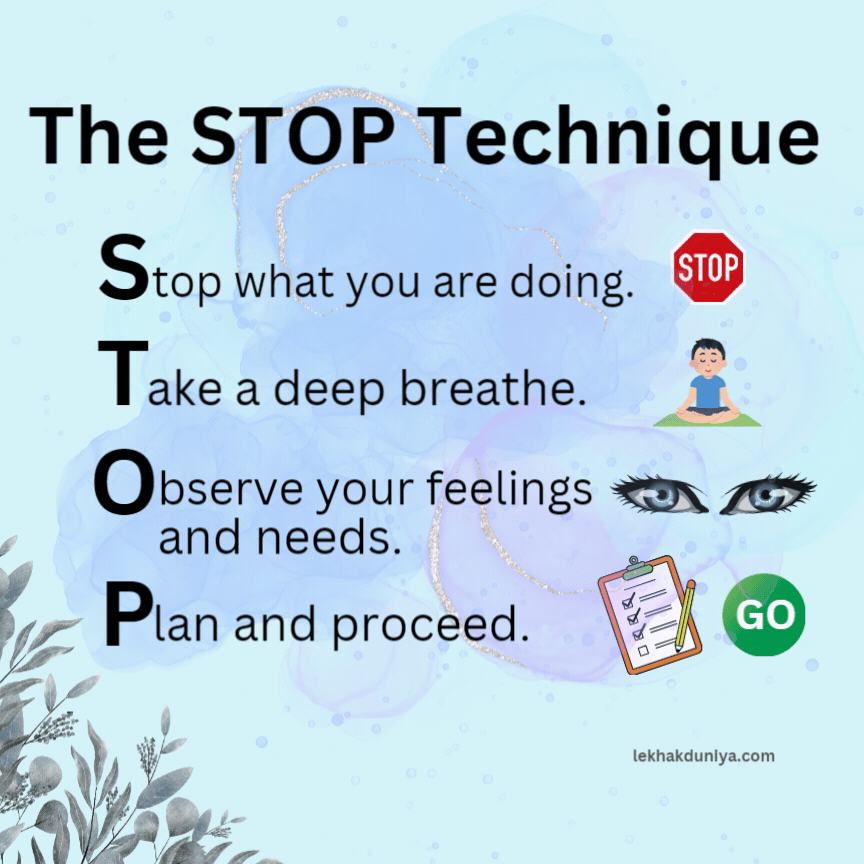“Every time you challenge a negative thought, you take one step closer to the best version of yourself.”
Table of Contents
The Power of Our Inner Voice
Strategies for overcoming negative thinking start with understanding the power of our inner voice. It can be a source of motivation and confidence or it can trap us in a cycle of self-doubt and negativity. Negative self-talk, the internal dialogue where we criticize and undermine ourselves, can significantly affect our mental health, self-esteem, and overall well-being. Many of us fall into this pattern without even realizing it.

However, just as we’ve built this habit over time, we can also unlearn it. Developing a healthier mindset starts with identifying and changing the way we talk to ourselves. In this blog, we’ll explore effective strategies for overcoming negative thinking and how you can cultivate a positive, empowering inner dialogue.
How Negative Self-Talk Develops
Negative self-talk doesn’t appear overnight; it develops over time, often shaped by external influences like societal expectations, emotional experiences, and past traumas. From childhood, we absorb the messages around us—whether from parents, teachers, peers, or the media—and these can contribute to forming a critical inner voice. Sometimes, the perfectionism society promotes causes us to hold ourselves to impossible standards, and when we fail to meet them, we fall into a cycle of harsh self-criticism.

Emotional triggers also play a role. If we experience rejection, failure, or any form of loss, our inner voice might become more negative as a form of self-protection. This pattern becomes ingrained, and soon, negative thinking feels like a natural response to any challenging situation. But with the right strategies for overcoming negative thinking, we can retrain our minds and develop healthier inner dialogues.
Recognizing the Signs of Negative Thinking

The first step to overcoming negative self-talk is recognizing when it happens. Most of us engage in negative thinking so automatically that it can be hard to notice. Some common signs include:
- Catastrophizing: assuming the worst possible outcome in every situation.
- Overgeneralizing: believing that a single failure means you’re doomed to fail in everything.
- Black-and-white thinking: seeing things in absolutes, such as “I’m always wrong” or “I’ll never succeed.”
- Blaming yourself for things that are out of your control.
Observe the language you use in your internal conversations. If you frequently catch yourself thinking, “I’m not good enough,” “I always mess things up,” or “No one likes me,” these are clear indicators of negative self-talk. Recognizing these signs is key to implementing effective strategies for overcoming negative thinking and creating a healthier mindset.
Strategies for Overcoming Negative Thinking

One of the most effective strategies for overcoming negative thinking is the STOP technique:
- Stop: Pause as soon as you recognize negative self-talk.
- Take a breath: Focus on your breathing to center yourself.
- Observe: Assess what is going on in your mind and emotions. Are your thoughts justified, or are they exaggerations?
- Proceed: Move forward with a more balanced, realistic perspective.
Another strategy is rewriting your inner dialogue. Instead of telling yourself, “I’m not good at this,” try saying, “I’m learning, and it’s okay to make mistakes.” By reframing your thoughts, you challenge the negative assumptions and allow room for self-compassion.
Visualization is another powerful method. When negative thoughts arise, visualize yourself overcoming the challenge or achieving a positive outcome. This mental imagery helps rewire your brain to expect success rather than failure, making it one of the most useful strategies for overcoming negative thinking.
Replacing Negative Thinking with Empowering Thoughts

Language has a profound impact on our mindset. Words like “I can’t” or “I’m not enough” carry limiting beliefs. To break free, you need to replace these negative statements with empowering ones.
Start by creating personal mantras that resonate with you. For example, if you struggle with self-doubt, repeat, “I am capable, and I trust myself.” These affirmations may feel unnatural at first, but over time, they rewire your brain to adopt a more positive outlook.
Visualization also plays a role here. Picture yourself succeeding, thriving, and handling difficult situations with grace. The more you practice this mental imagery, the more you train your brain to focus on positive outcomes rather than fixating on negative ones. Using strategies for overcoming negative thinking like this transforms your internal dialogue and boosts self-confidence.
Creating Daily Habits for a Healthier Mindset
To cultivate a healthier mindset, it’s important to build daily routines that support positive thinking. Morning routines can set the overall mood and productivity for your day. Start your day with a few minutes of gratitude, acknowledging the things you’re thankful for, no matter how small. Pair this with positive affirmations that remind you of your strengths and capabilities.
Incorporating regular exercise and nutrition also plays a crucial role. Physical activity releases endorphins, the brain’s feel-good chemicals, which help combat stress and negativity. A well-balanced diet supports your mental clarity and emotional well-being.
At the end of the day, consider practicing gratitude journaling. Reflect on the positive moments you experienced, no matter how insignificant they may seem. This practice can shift your focus from negative events to the good things in your life. Over time, these small habits form part of effective strategies for overcoming negative thinking.
How to Stay Consistent in Building a Positive Mindset
Developing a positive mindset is an ongoing adventure, not a final goal. It’s important to stay consistent and patient with yourself. Set realistic goals, such as catching yourself in moments of negativity a few times a day and actively challenging those thoughts.
Celebrate small wins. Every time you successfully replace a negative thought with a positive one, acknowledge it. Over time, these small shifts accumulate, leading to lasting change.
Consider finding an accountability partner – someone who will support and remind you to stay on track with your mental wellness goals. This could be a close friend, family member, or mental health professional. Consistency is key when applying strategies for overcoming negative thinking, so tracking progress can be a motivating factor.
A Journey Toward Self-Improvement

Overcoming negative self-talk is a gradual process, but with consistent effort, you can break free from the cycle of negativity and cultivate a healthier, more positive mindset. By recognizing harmful thought patterns, applying strategies for overcoming negative thinking like the STOP technique, and developing empowering habits, you can change how you interact with yourself. Remember, self-improvement is an ongoing journey. Be patient and kind to yourself, and embrace the process of growth as you work toward building a healthier, more resilient mind.




Fran Candelera I’m often to blogging and i really appreciate your content. The article has actually peaks my interest. I’m going to bookmark your web site and maintain checking for brand spanking new information.
Thanks, Fran, for your great support.
Tech Learner There is definately a lot to find out about this subject. I like all the points you made
Houzzmagazine I just like the helpful information you provide in your articles